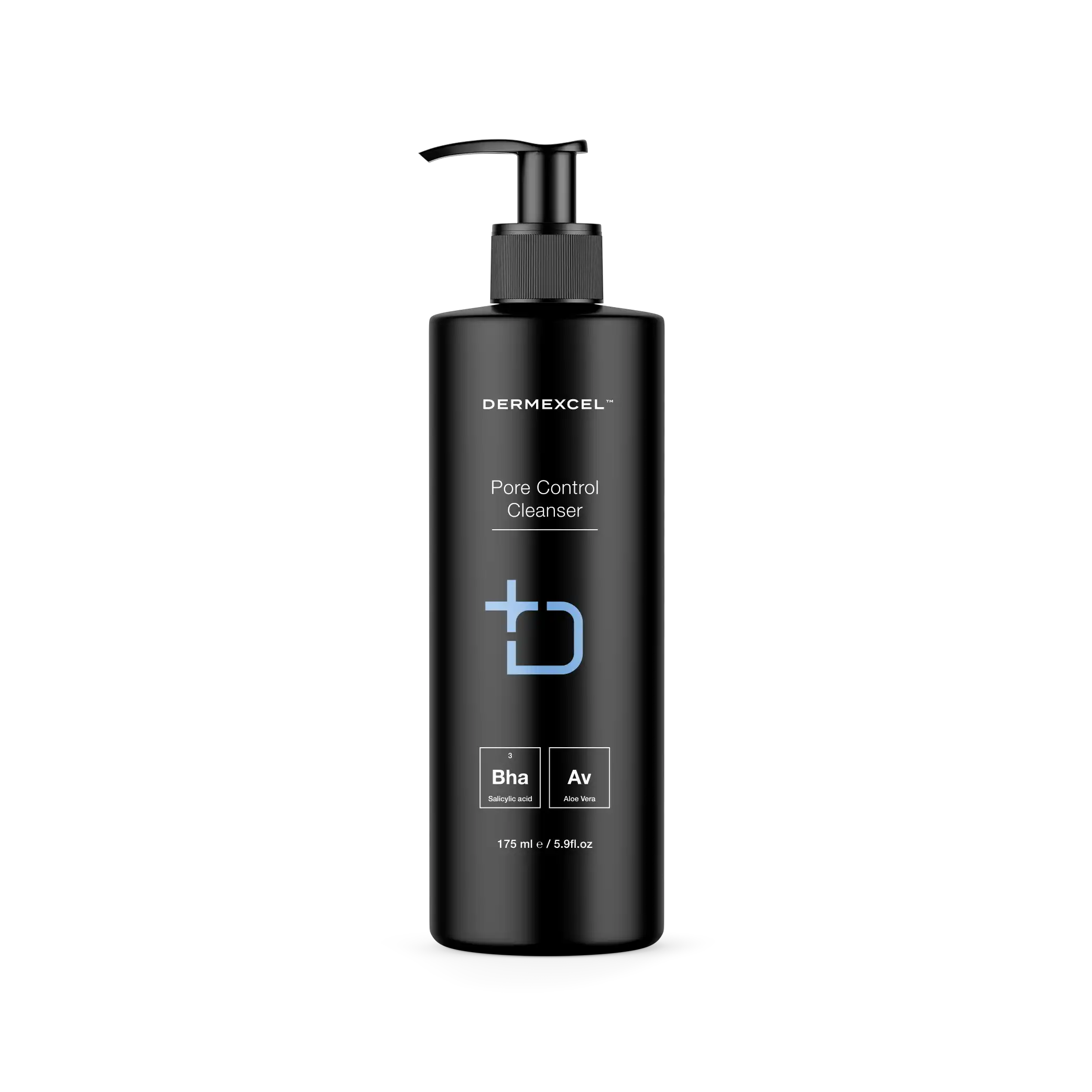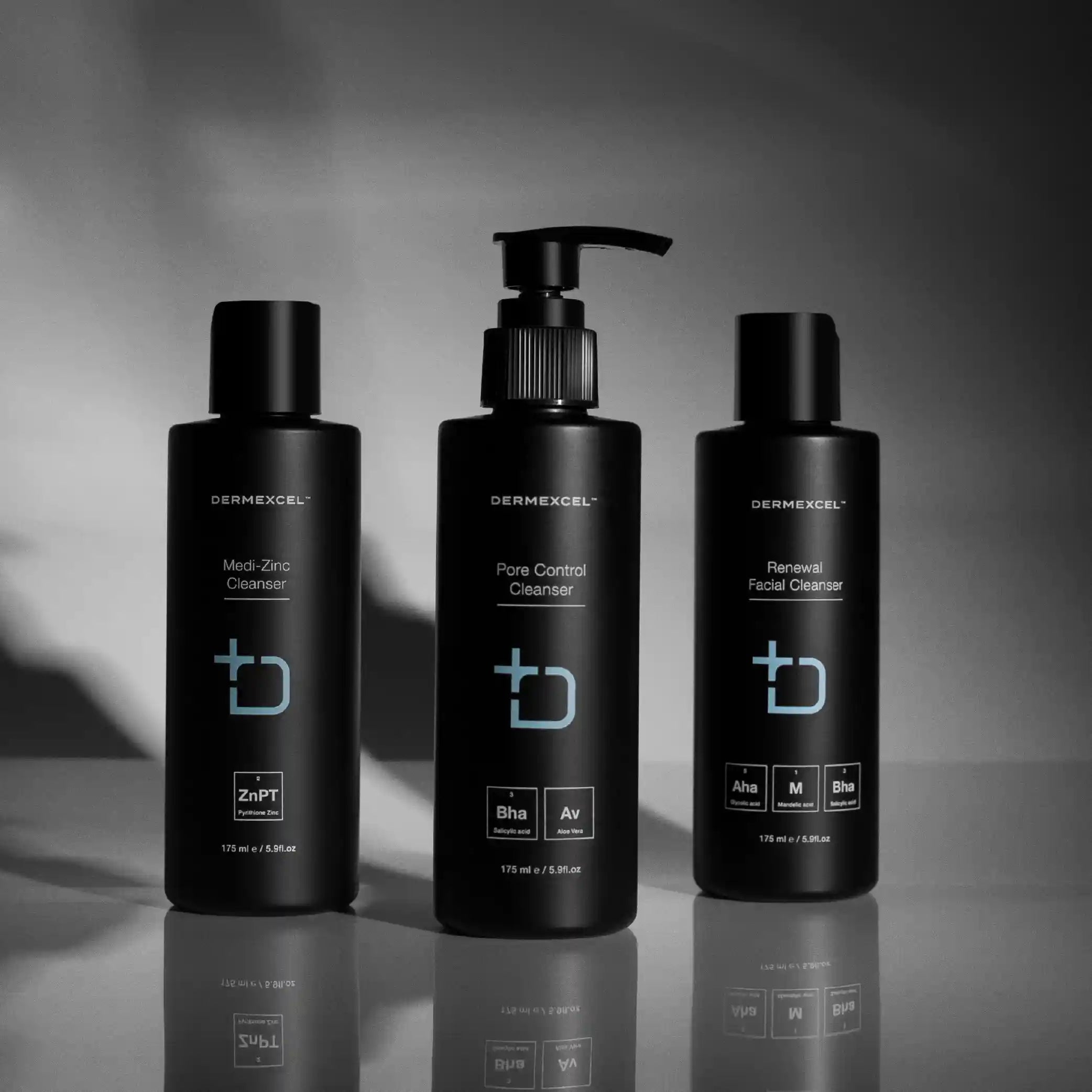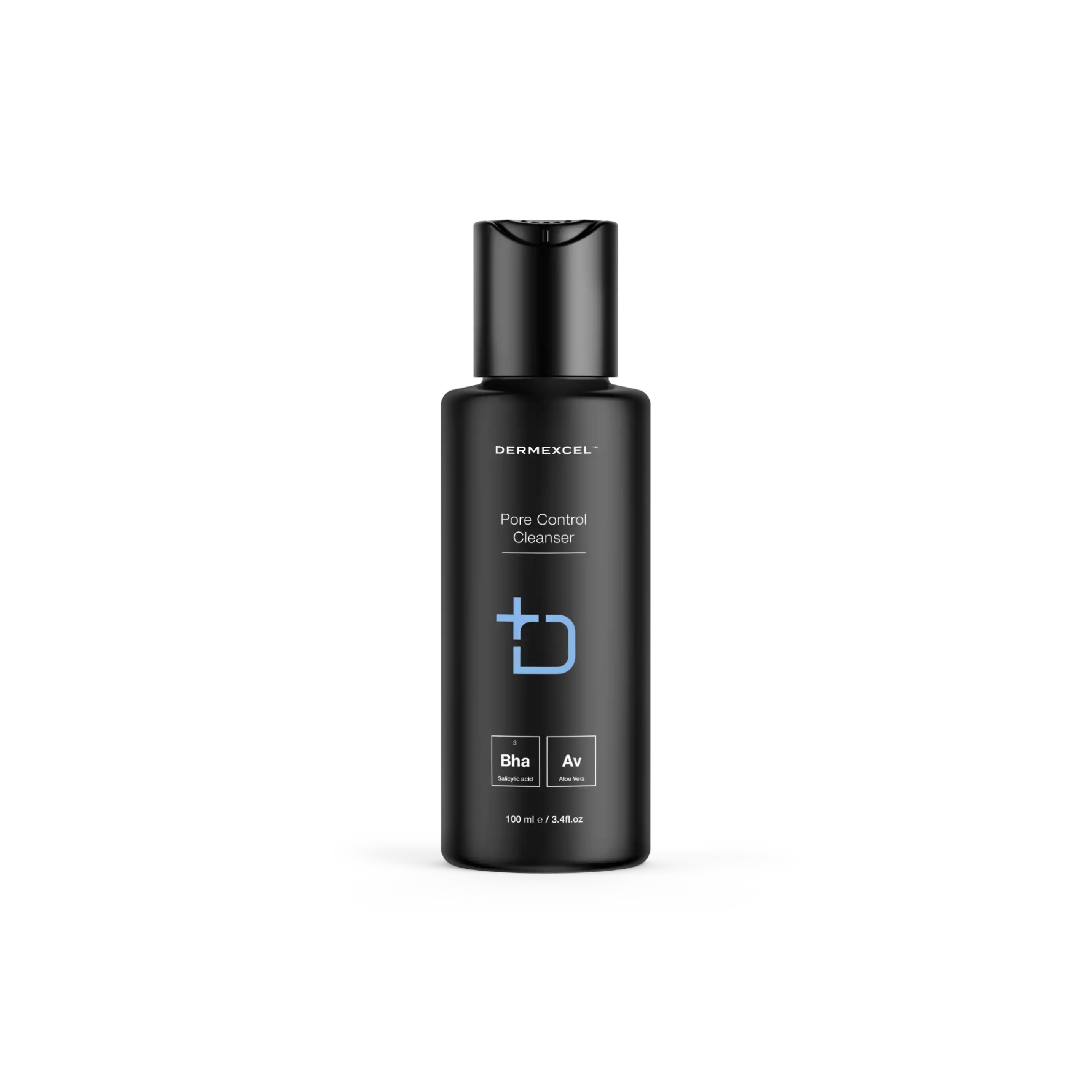






Pay interest-free installments from R 120.00 with various payment gateways selected at checkout.




Choose options



Aqua, Methylpropanediol, Cocoamidopropyl betaine, Glycol monostearate, Glycerin, Sodium Lauroyl Sarcosinate, Salicylic acid, d-Panthenol, Azelamidopropyl dimethyl amine, Butylene glycol, Polyacrylate Crosspolymer-6, Phenoxyethanol, Ethylhexylglycerin, Aloe barbadensis, Hydroxyethylcellulose, Disodium EDTA, Hamamelia Virginiana
Pore Control Cleanser
product benefits
Remove blackheads
Targeted Acne Treatment
Exfoliating
Anti-inflammatory
Sebum Regulation
Anti-Microbial
Indications for Pore Control Cleanser
Inflammation
Clogged Pores
Enlarged Pores
Sensitive Skin
pore control cleanser
mode of action
salicylic acid
pore clearing action
mode of action
salicylic acid as acne treatment

Keratolytic

Comedolytic

Anti-bacterial

anti-inflammatory
Testimonials


Not sure which products you need?
Find your regimen
Assessment
Submit your free Dermal Diagnosis™ Assessment
Treatment Plan
Receive your Free Personal Profile and Treatment Plan
Confident Skin
Start your Simple and Effective journey to Confident Skin!













